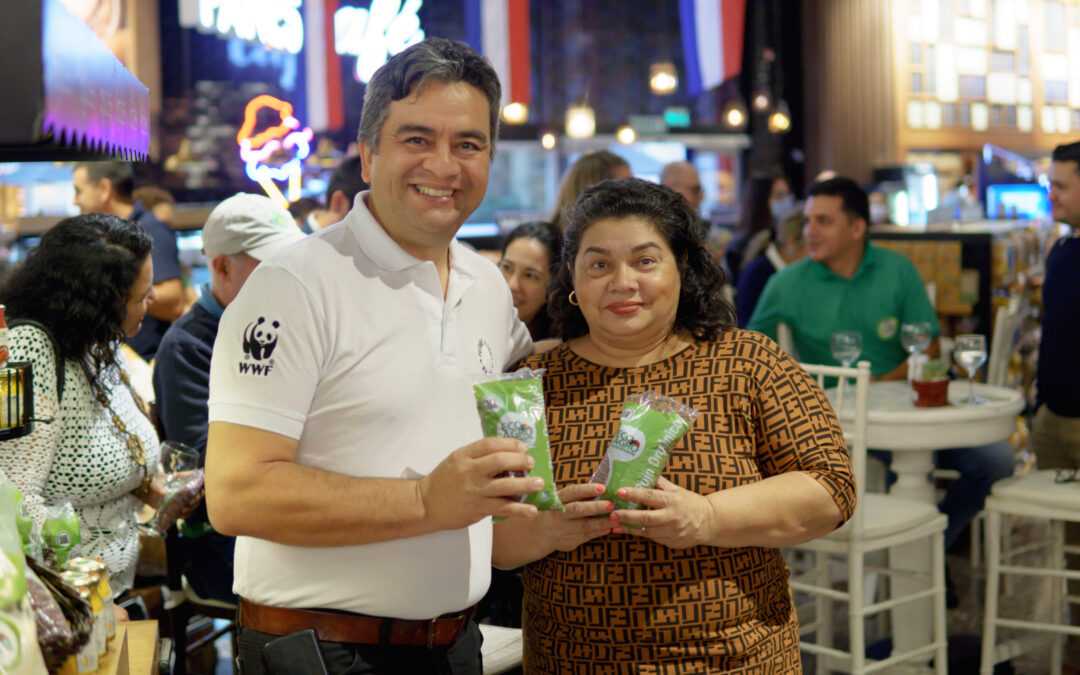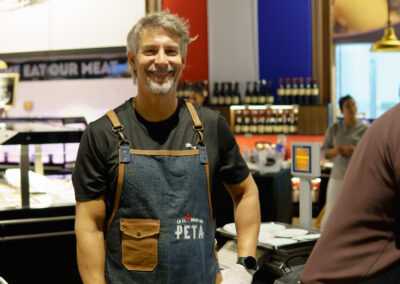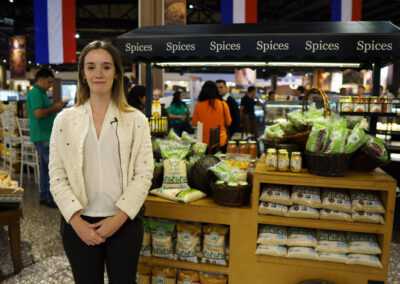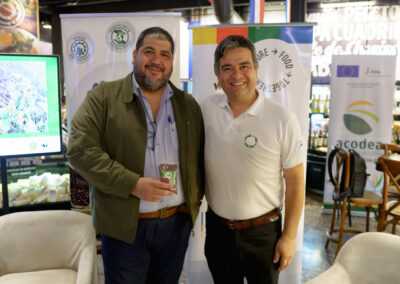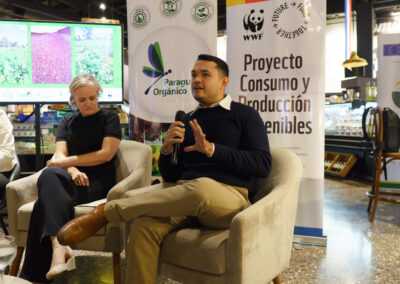Oscar Rodas (WWF) with the red bean product and a consumer at the launch event © WWF-Paraguay
Our project team in Paraguay is dedicated to the development of organic agriculture as a strategic approach to mitigating the environmental impact caused by current input-intensive production methods.
In a collaboration between APRO (Association of Organic Producers), EcoAgro (a leading agroecological organization), and Retail S.A. (the largest retail company in Paraguay), Future Food Together organized the launch event for the first certified organic agroecological product. This is a significant milestone for the team’s commitment to promoting healthier and environmentally friendly food choices.
Certified Organic Beans
In Paraguay, there has been a significant surge in the demand for organic products, leading to the organization of organic fairs throughout the country. Our project team is currently involved in the National Organic Program, a collaborative initiative involving producer groups and private sector companies. The primary goal of this program is to promote organic agriculture, particularly through the utilization of agroecological methods. Future Food Together acknowledges the need for alternative certification schemes that align with local conditions. To address this, we support Participatory Guarantee Systems (PGS), which prioritize a multi-stakeholder approach and involve all parties in standard development and oversight. Our collaboration with local non-governmental organizations reflects our commitment to supporting alternative certification models and addressing these challenges.
At an official event, the first certified organic beans of the country were launched, marking a significant step forward in the agroecological movement in Paraguay. The collaboration between APRO and EcoAgro ensures that the entire production process adheres to organic standards, benefiting both the consumers and the environment. This alliance aims to enhance the socioeconomic conditions of producers by providing secure market access and delivering high-quality and, above all, healthy products. By adhering to organic farming methods, the cultivation of these red beans prioritizes agroecological techniques, minimizing the use of agrochemicals and pesticides that can harm the environment and human health.
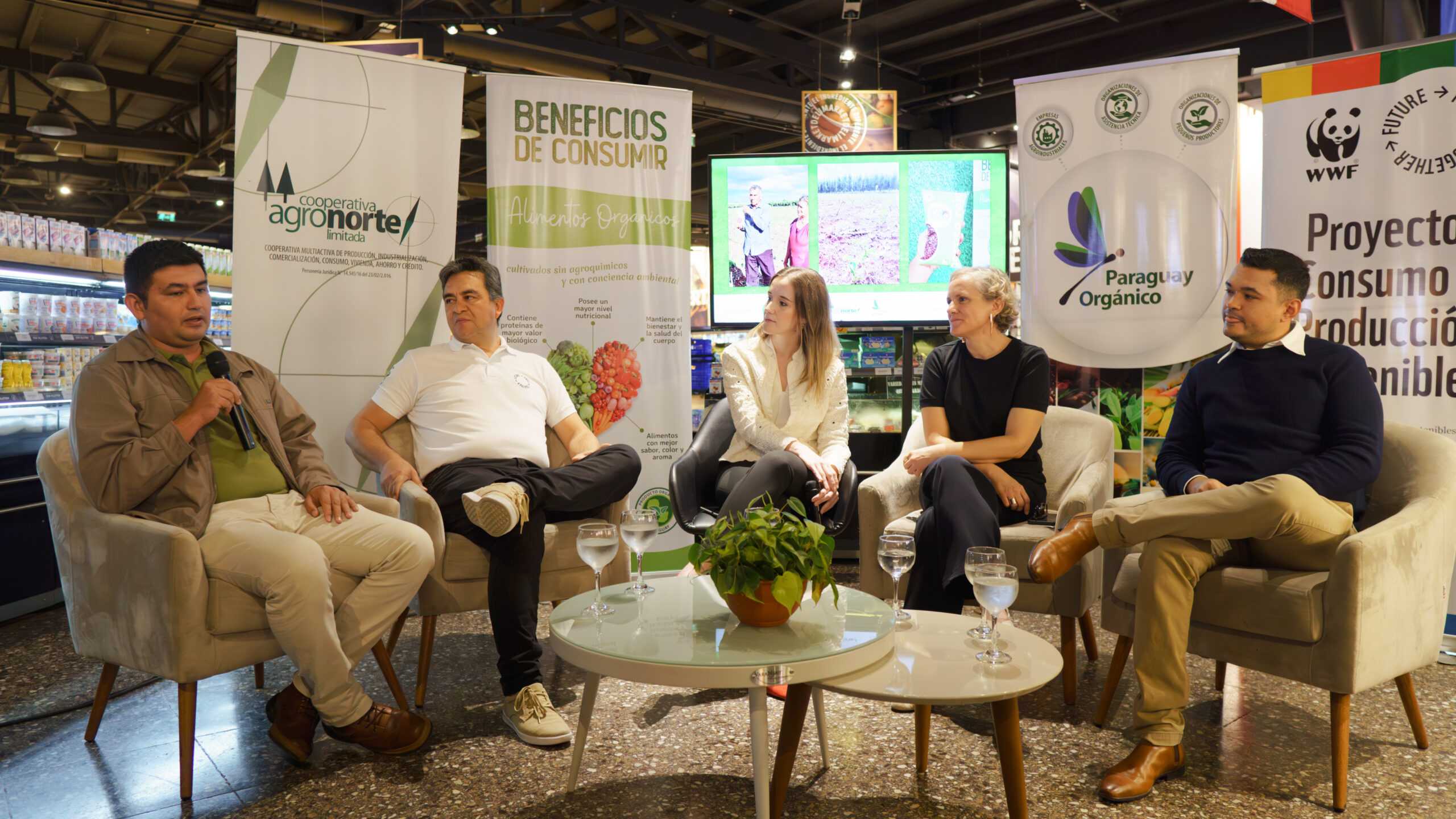
Rolando Chávez Genes (Viceministery of Agriculture), Oscar Rodas (WWF-Paraguay), María Laura Segales (Superseis Supermarket), Daniela Solis (Paraguay Organic Association), Francisco Parra (EcoAgro) © WWF-Paraguay
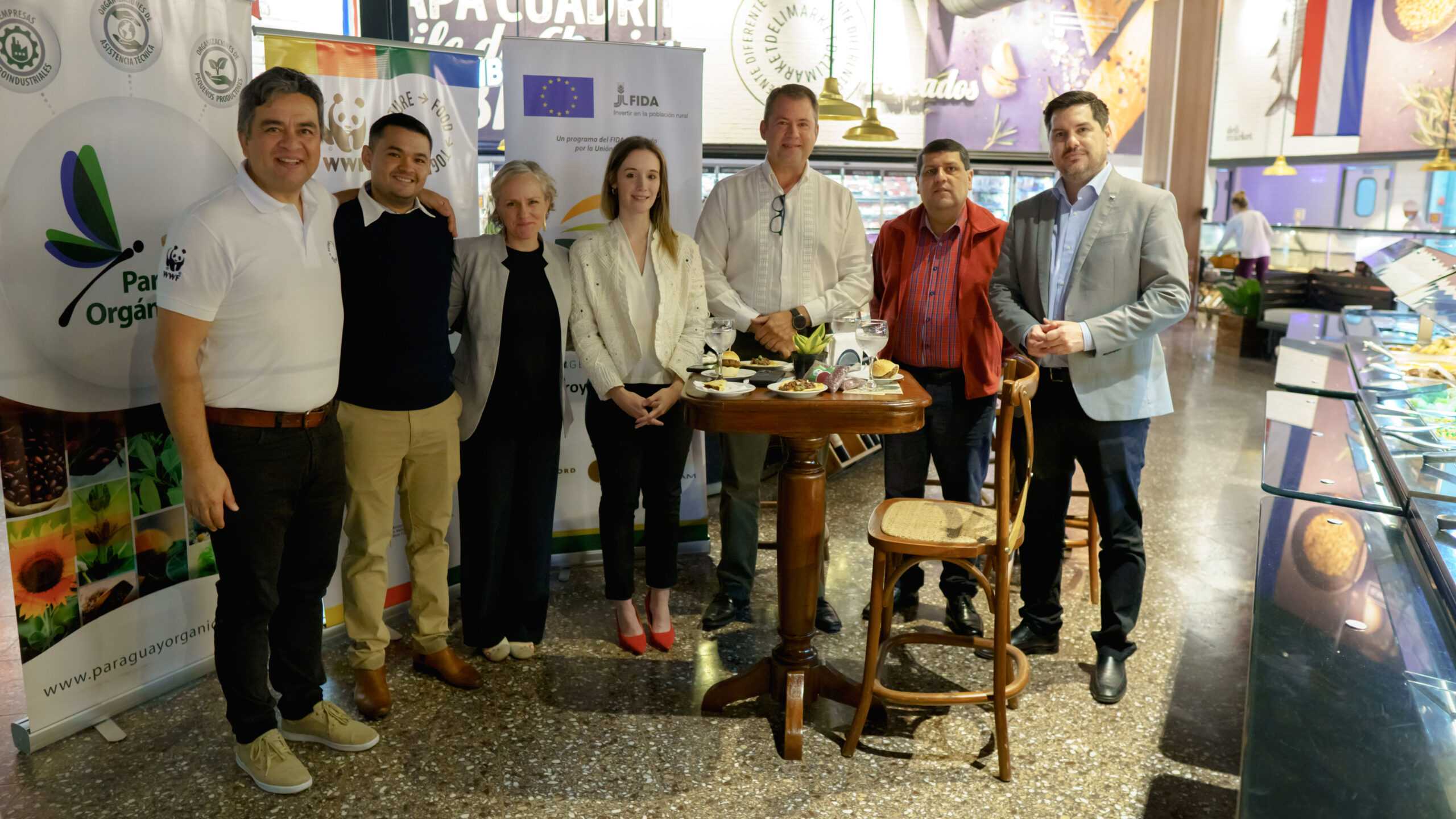
Oscar Rodas (WWF-Paraguay), Francisco Parra (EcoAgro), Daniela Solis (Paraguay Organic Association), María Laura Segales (Superseis Supermarket), Paul Grimm (Casa Rica Supermarket), Juan Marcelo Estigarribia López (Secretary of Consumer Defense), Fernando Díaz de Vivar (WWF-Paraguay) © WWF-Paraguay
Recipe Book and Live Cooking
As part of the launch event, a special recipe book has been curated by the master chef Peta Ruger. This recipe book will offer a diverse range of culinary creations, showcasing the versatility and flavors that can be achieved using beans. With Peta Ruger’s expertise and innovative recipes, the recipe book aims to inspire consumers to embrace sustainable cooking practices and make informed choices about their food consumption. To bring the recipe book to life, a live cooking session took place during the launch event.
The event encouraged engagement and fostered a deeper understanding of the benefits of agroecological products.
Influencer Outreach
Recognizing the power of social media in reaching a wider audience, the launch event has included a comprehensive influencer outreach strategy. Our team has developed a toolkit specifically designed for influencers, enabling them to effectively communicate the significance of the launch event and the product to their followers. By leveraging the social media channels of influencers, the aim is to generate increased awareness and interest in certified organic beans, driving consumer demand and encouraging the adoption of sustainable agricultural practices.
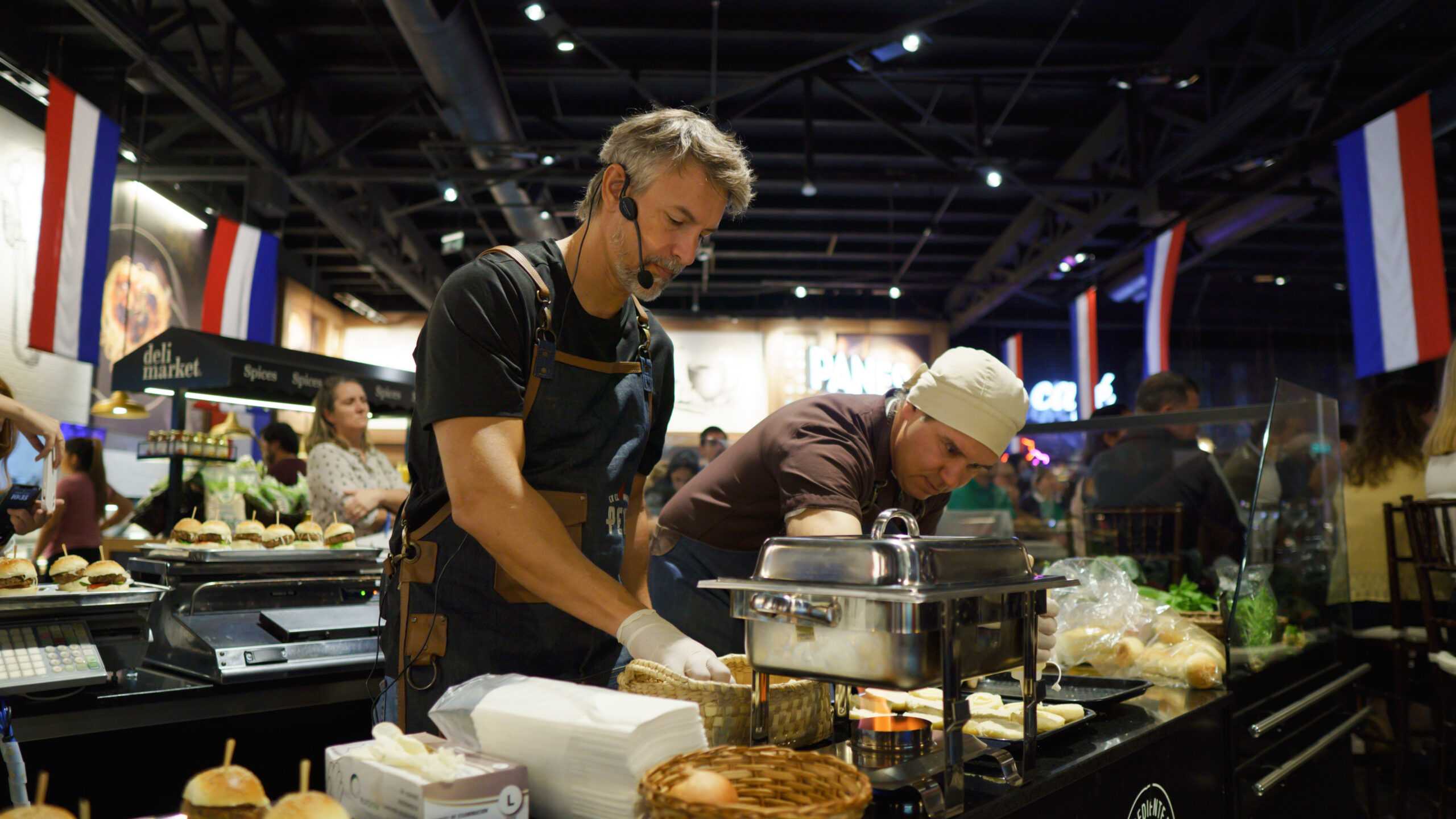
Chef Peta Ruger © WWF-Paraguay
Óscar Rodas, a representative of the organization, emphasized the significance of making this product available in supermarkets. It provides people with the opportunity to shift their diets towards local, accessible options. Furthermore, he stressed the vital role of small producers in the world’s food systems.
Find out more about or work in Paraguay here:

